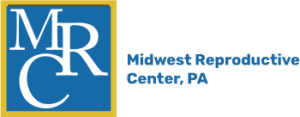Ovarian stimulation for IVF (in vitro fertilization)
During the ovarian stimulation phase of IVF, we use injectable fertility medication to stimulate your ovaries to produce multiple eggs.
Ovarian stimulation is an important component of a successful IVF cycle. During this phase of treatment, you receive hormone medications (also known as fertility drugs) that stimulate the ovaries to produce multiple, viable eggs. Multiple eggs increase the likelihood that 1) you will have viable eggs and 2) you will have extra embryos available to freeze if additional attempts are needed to achieve pregnancy.
Ovarian stimulation is a controlled process, promoting optimal egg maturation
After Dr. Dan Gehlbach has carried out the suppression phase of IVF (in which we suppress your natural ovarian hormone production, which allows us to synchronize egg production), ovarian stimulation begins. This IVF phase usually lasts from 7 to 10 days and involves multiple steps.
- Our staff will instruct you on how to administer the injections. Most medications can be self-administered.
- Dr. Gehlbach and his staff will monitor your progress closely using blood tests and ultrasound, ensuring that you are responding as needed to the injections. We also adjust the medication dosages depending on your body’s response.
- Once the follicles (the fluid-filled sacs that contain the oocytes or immature eggs) mature to 18—20 mm in diameter, we will instruct you to administer a final injection that prepares your ovaries to release the eggs.
- Approximately 36 hours after the HCG injection, we will schedule egg retrieval.
Injectable fertility medications provide direct ovarian stimulation
Injectable fertility medications are gonadotropins which contain FSH (follicle stimulating hormone) and/or LH (luteinizing hormone). The benefit to these drugs is that they are exactly the same as the hormones (FSH and LH) found in a woman’s body. Therefore, the drugs stimulate the ovaries directly, unlike oral medications (like Clomid® and Femara®), which provide indirect ovarian stimulation.
There are some possible side effects with injectable medications, but most are mild: skin irritation, tenderness, bruising or swelling at the site of the injection. Rarely, some women may experience ovarian hyperstimulation syndrome. Symptoms include enlarged ovaries, retaining fluid and weight gain.
There is also an increased chance of multiple pregnancies. However, we follow the guidelines from the American Society for Reproductive Medicine on the number of embryos to transfer, and we discuss the number of embryos you wish to have transferred.
Dr. Gehlbach and the experienced staff at Midwest Reproductive Center will provide you with complete information and thorough instructions during the ovarian stimulation process. If you want to learn more about IVF, schedule a consultation with Dr. Gehlbach.



